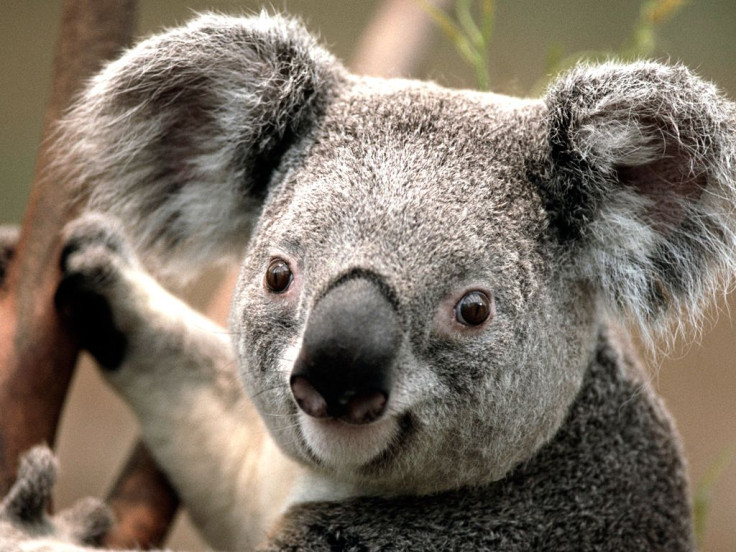Hundreds Of Koalas Die As Bushfire Rages In Their Breeding Ground In Australia

A lightning strike near Port Macquarie, Australia, is the reported cause of a bushfire that is raging out of control and has burned over 2,000 hectares. Hundreds of koalas, an arboreal herbivorous marsupial native to the continent, are believed to have perished in the blaze. The area is described as the “heartland of their prime habitat” and is an important breeding ground for the mammal.
Port Macquarie is on the eastern coast of Australia about halfway between Brisbane and Sydney. The blaze is burning in the areas of Lake Innes and Lake Cathie, south of the port and north of Sydney. Residents of Sydney will be affected by the haze from the fire.
Sue Ashton is the president of the Port Macquarie Koala hospital which can handle about 40 koalas. She has rallied to gather about 150 volunteers to deal with any surviving koalas, but fears that there will be few because koalas are “terrible at coping in a bushfire scenario.”
The koalas typically inhabit open eucalyptus woodlands and the leaves of these trees make up most of their diet. Because their diet has limited nutritional and caloric content, koalas are largely sedentary and sleep up to 20 hours a day.
Ashton explained, “What generally happens in a fire is the koala climbs right up to the top of the tree and curls into a little ball. So, often the flames will just go over the top and singe the outside, but with really intense fires it can burn them alive.”
She added that if they survive the blaze, they might burn their paws and claws in hot ashes as they descend from the trees rendering them unable to climb, perhaps permanently. For an arboreal, or tree-dwelling animal, this will prove fatal.
New South Wales Rural Fire Service (NSW RFS) spokesman Greg Allan said north-easterly winds had pushed the smoke as far south as Wollongong and Nowra, south of Sydney. He said, “It’s still an active fire and won’t be out for some time. The winds are pushing it down along the coast, which will keep happening as long as the fire is burning.”
No humans have perished in the fire, but NSW Health has warned that children, older adults and people with heart and lung conditions are most susceptible to the effects of air pollution and excessive smoke.
Animal rights activists expressed their concerns for the koalas because the fire will reduce the koala population already under threat by urbanization and habitat destruction. At present the koala is not officially listed as endangered.
Climate activists have also added their opinions that the bushfire is caused by global climate change that has upset the “relationship” between El Niño and the Australian bushfire season.
© Copyright IBTimes 2025. All rights reserved.





















